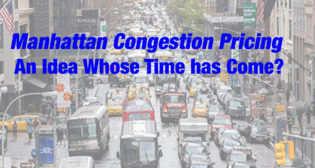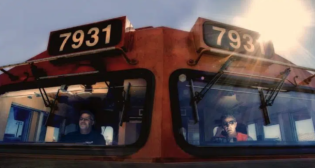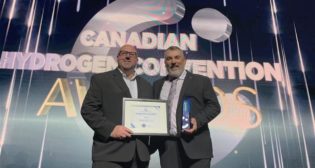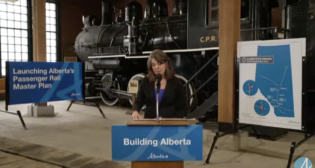
Transit Briefs: Brightline, MBTA, St. Louis Metro Transit, NYMTA, CMAP
Written by Marybeth Luczak, Executive Editor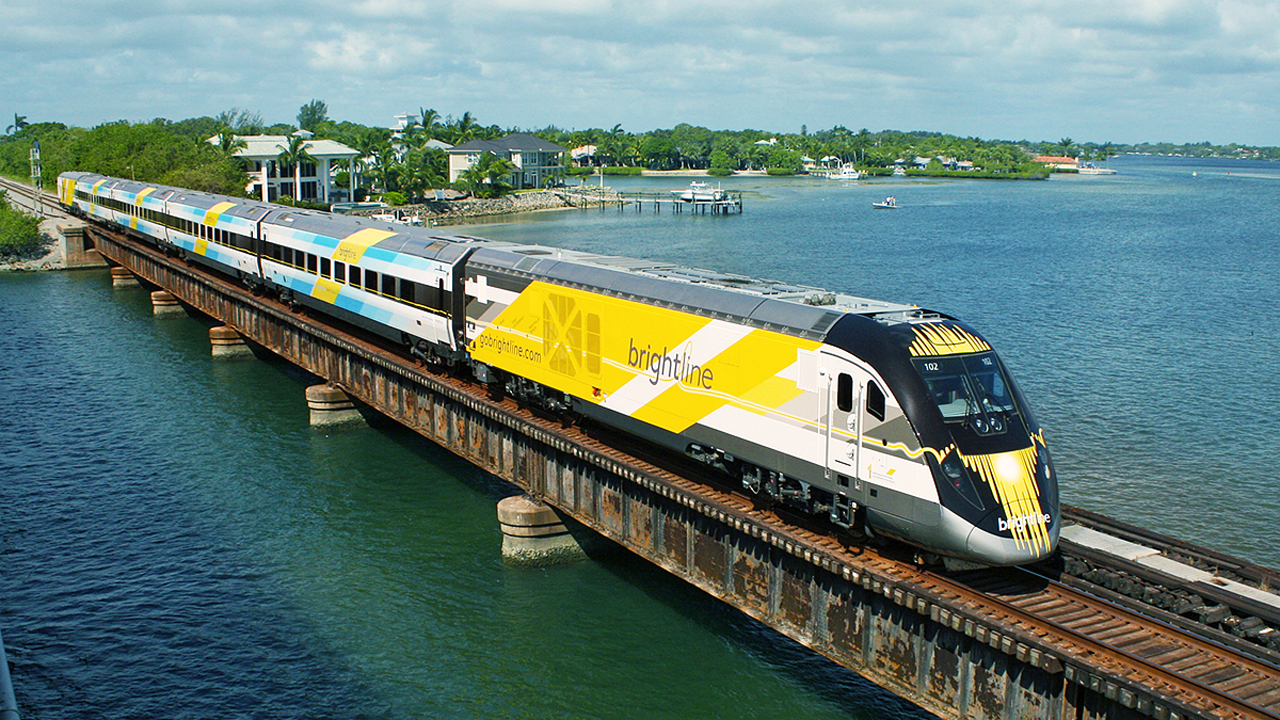
Brightline now has schedule apps for the St. Lucie River Railroad Bridge and the New River Bridge in Fort Lauderdale to help mariners plan their trips.
Brightline and Florida East Coast Railway launch St. Lucie River Railroad Bridge app. Also, municipalities face penalties for not following Massachusetts zoning laws intended to promote housing development near MBTA (Massachusetts Bay Transportation Authority) stations; St. Louis, Mo., Metro Transit is seeking quotes for security gate and fence installation at light rail stations; New York Metropolitan Transportation Authority’s (MTA) latest fare increases are now in effect; and Chicago Metropolitan Agency for Planning (CMAP) is developing recommendations that could reshape transit in the region.
Brightline
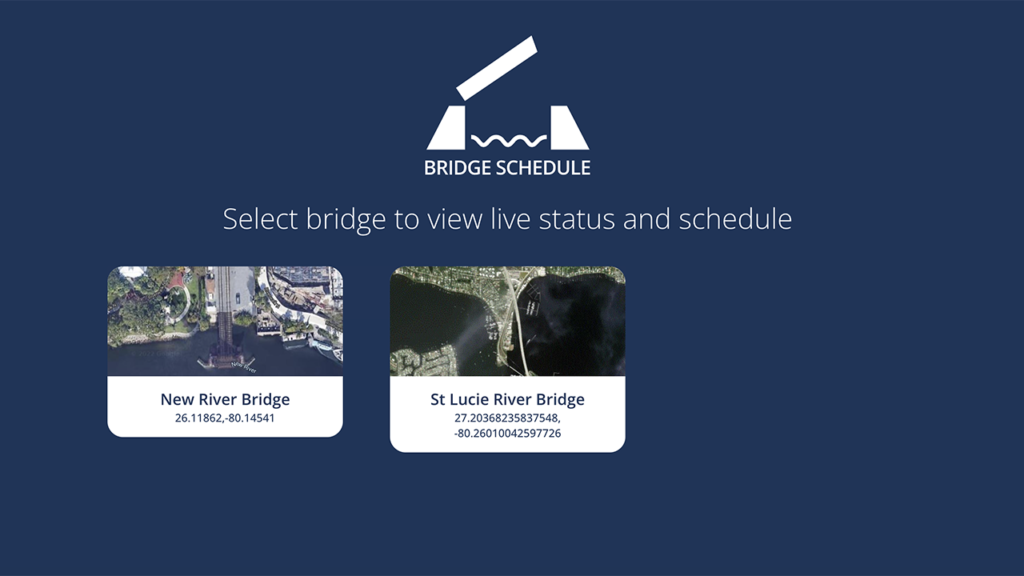
Now available for mariners are a St. Lucie, Fla., bridge schedule app for Apple and Android and a website, according to Brightline, Florida’s private-sector passenger railroad, and infrastructure owner Florida East Coast Railway. The tech platforms, which provide forecasts as well as real-time updates so users can plan their trips, went live Aug. 15 in coordination with the United States Coast Guard (USCG) temporary deviation that is said to guarantee mariners more than 50% access to the waterway.
Brightline has also installed variable message signs on each side of the bridge, which are interconnected to its signal system. The signs display a countdown to each bridge closure and opening. A bridge monitor is on-site daily between 6 a.m. and 10 p.m. in Brightline’s recently built bridge monitor house.
The passenger and freight railroads reported hiring a Manager of Waterway Communications, a South Florida-based, USCG-licensed captain who will liaise with the South Florida and Treasure Coast marine communities.
Earlier this year, Brightline updated the technology of its app and website for the New River bridge in Fort Lauderdale.
MBTA
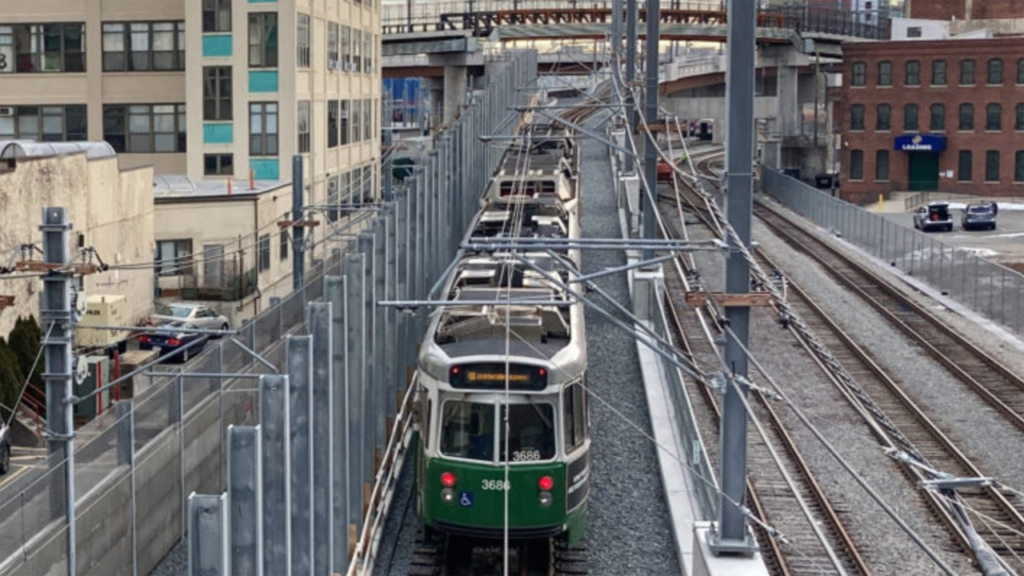
MassLive.com on Aug. 17 reported that Massachusetts cities and towns will not be eligible for new state funding until they are in compliance with the 2021 MBTA Communities law, which requires those “served by the transit agency have at least one zoning district ‘of reasonable size’ where multi-family housing is allowed within a half-mile of a commuter rail, subway or bus station or ferry terminal, if applicable.”
The Central Massachusetts Housing Alliance earlier this month sued the town of Holden “for saying it would not follow the law,” the media outlet reported. “Communities which do not comply with the law were already ineligible for certain programs, but that list has now grown to include Community Planning Grants, the Massachusetts Downtown Initiative, Urban Agenda, Rural and Small-Town Development Fund, Brownfields Redevelopment Fund, Site Readiness Program, Underutilized Properties Program, Collaborative Workspace Program, Real Estate Services Technical Assistance, Commonwealth Places Programs, Land Use Planning Grants, Local Acquisitions for Natural Diversity grants, and Municipal Vulnerability Preparedness Planning and Project Grants.”
According to MassLive.com, Massachusetts has provided $2 million-plus to date “to more than 50 communities that are trying to get in compliance.”
“The MBTA Communities law is a vital tool to incentivize and expedite much-needed housing development across the state,” said Massachusetts Executive Office of Housing and Livable Communities (EOHLC) Secretary Ed Augustus Jr., according to the media outlet. “These updated guidelines demonstrate a collaborative effort with MBTA Communities to implement the law, ensure compliance, and provide reasonable adjustments to zoning requirements without reducing the total number of required housing units. Nevertheless, compliance with the law is mandatory and today’s [Aug. 17] updates specify thirteen additional discretionary grant programs that will now take (MBTA Communities) non-compliance into consideration when awarding funds.”
EOHLC also announced that it is now counting “residential units in properties with required ground-floor commercial space toward communities’ compliance with the law,” the media outlet reported. “This will allow communities where existing village-style or downtown development is needed to preserve pedestrian access to require ground-floor commercial space in those areas, but will put some restrictions on mixed-use development zoning, including capping the percentage of floor area that is non-residential and prohibiting minimum parking requirements for non-residential uses.”
St. Louis Metro Transit
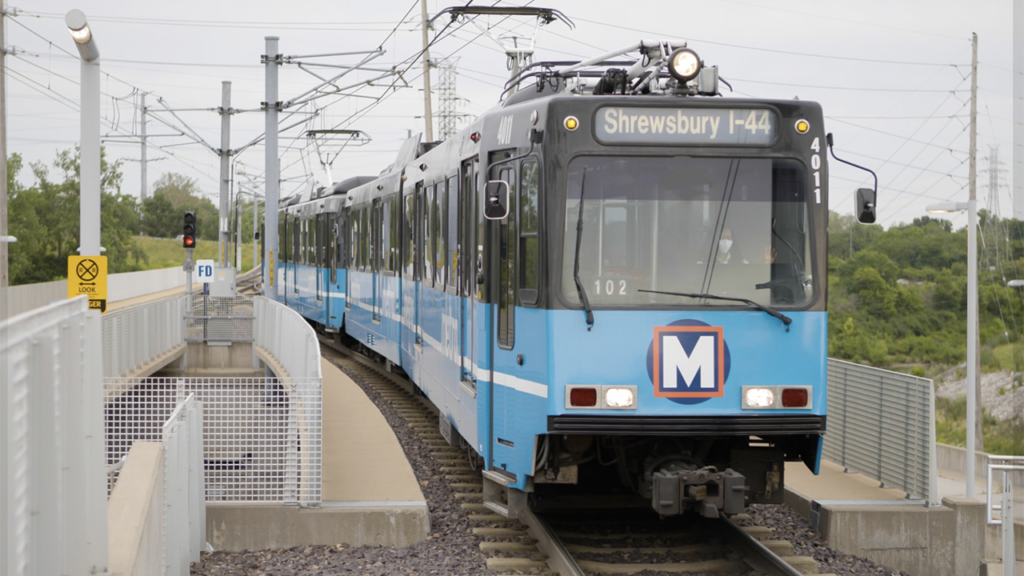
St. Louis Metro Transit is calling for bids to install gates and fences at four MetroLink light rail stations by spring 2024, so only riders with tickets will be allowed on platforms, according to a FOX 2 News report.
The Washington Park MetroLink Station and three others will be the first of 39 stations on MetroLink’s 46-mile line to see the changes, the media outlet reported. All stations will be equipped by the end of 2025, it said, as part of the $52 million Secure Platform Plan.
The plan also includes new “smart surveillance camera technology,” which will double the number of camera positions from approximately 900 to approximately 1,800, the media outlet reported.
The plan has been divided into six construction packages comprising four to eight MetroLink stations each. Stations have been selected for the first two packages. Package 1 includes the Jackie Joyner-Kersee Center, College, Emerson Park and Washington Park MetroLink Stations.
The Forest Park-DeBaliviere, Central West End, Cortex, Grand, Union Station, Civic Center and Delmar Loop MetroLink Stations have been selected for Package 2 of the Secure Platform Plan. The design phase for this package is scheduled to be completed in fall 2023, with construction at those seven stations expected to be completed in summer 2024.
Metro Transit has collaborated with design consultant HNTB to identify the most appropriate gating and fencing solutions for the Secure Platform Plan. HNTB’s primary recommendation of a roto-gate, complemented by a swing gate for ADA and emergency access was selected by Metro Transit. Following a comprehensive analysis and scoring criteria, welded-wire fencing was selected that provides both optimal security and visual appeal for MetroLink.
NYMTA
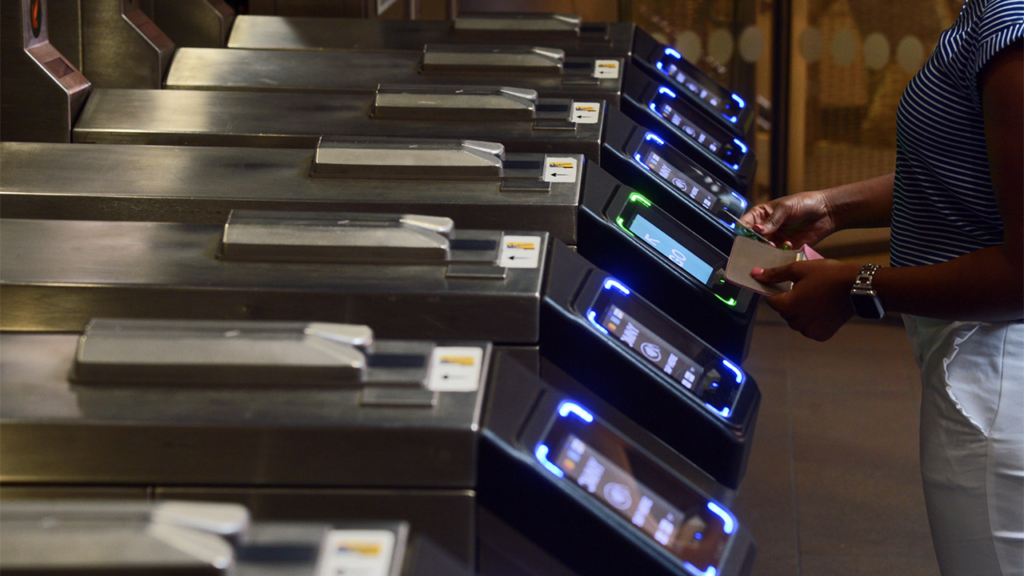
New fares for NYMTA subway, bus and commuter railroad riders took effect Aug. 20. Designed to yield a 4% fare revenue increase, they were approved by the MTA Board at its July meeting, the agency reported Aug. 18.
The base fare for subways, local buses, the Staten Island Railway and Paratransit rose 5.5% (from $2.75 to $2.90); express bus fares are up 3.7% (from $6.75 to $7); and single-ride tickets on subways and buses are up 8.3% (from $3 to $3.25). All discounts for seniors and other reduced-fare customers remain in place.
According to NYMTA, Long Island Rail Road and Metro-North Railroad will continue fare discounts that initially debuted in February 2022, including an additional 10% discount on monthly tickets. Fares were frozen for Metro-North’s West-of-Hudson service, the Pascack Valley Line and the Port Jervis Line, which is provided under contract by New Jersey Transit. The 20-trip ticket promotion ended Aug. 19.
NYMTA reported that the OMNY seven-day “best fare” tap-and-go fare-cap now begins any day of the week. “A rider’s seven-day period will begin automatically with the first tap into the system and be charged per ride for their first 12 rides of the week, regardless of what day the week starts,” according to the transit authority. “Riders who tap with OMNY will never have to worry about paying more than they should in a week because they pay on a per-trip basis and never pay more than $34 within any seven-day period, no matter how many trips they take. The first 11 trips cost $2.90 per tap, the 12th trip costs $2.10, and the 13th trip and all subsequent trips are free. Unlike the 7-day unlimited-ride MetroCard, which requires an upfront $34 payment, the OMNY ‘best fare’ initiative will give customers the financial flexibility to pay as they go until they have spent $34 in any consecutive seven days. Riders will not pay more than $34 in those seven days.”
“The modest increase in fares and tolls is a continuation of an MTA practice that began in 2009 in which small, predictable adjustments are made to fares and tolls on a biennial basis,” NYMTA reported July 19, when the fare hikes were announced. “Due to the impact the pandemic had on ridership, fare increases were temporarily put on hold in 2021. The toll and fare revenue increase for 2023 is projected to generate $117 million in 2023. The five-year plan announced on Monday, July 17 assumes an additional 4% increase in 2025 and in 2027.”
CMAP
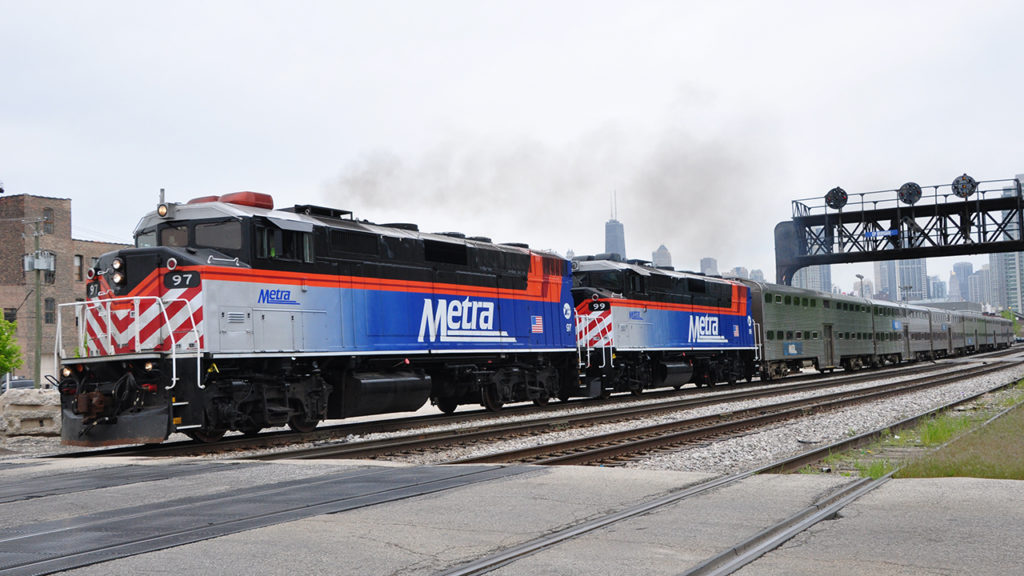
The state of Illinois has asked CMAP to develop a plan to keep Chicago Transit Authority, Metra and Pace bus services “afloat and attracting more riders,” according to an Aug. 17 Chicago Sun-Times report.
The newspaper said CMAP is considering:
- Fare increases (with rates recalculated “every four years based on inflation, rather than the existing irregular and sometimes dramatic fare hikes”).
- More affordable fare options.
- Sales tax hikes (not including housing, utilities and health care).
- One regional agency to run all three transit systems (CTA, Metra and Pace currently operate as separate agencies, and the Regional Transportation Authority oversees financing).
- More frequent and reliable bus service.
Among the other proposals: “moving to one fare system rather than the current separate ones for each agency; adding ‘transit ambassadors’ to improve safety; and improving compliance with the Americans with Disabilities Act by expanding transit options for riders with disabilities.”
The CMAP report is due to the governor and General Assembly by Jan. 1, and the agency will gather feedback from riders and the community before finalizing its recommendations, the newspaper reported.
“We’re faced with this fiscal cliff for the transit system—a key component of this whole thing,” CMAP Senior Director and Policy Advisor Laura Wilkison said during a Metra Board meeting, according to the Chicago Sun-Times. “We need to improve upon the system. We’re not trying to go back to where we were in 2019. And if people are going to come back to transit, it has to be to an improved system.”
